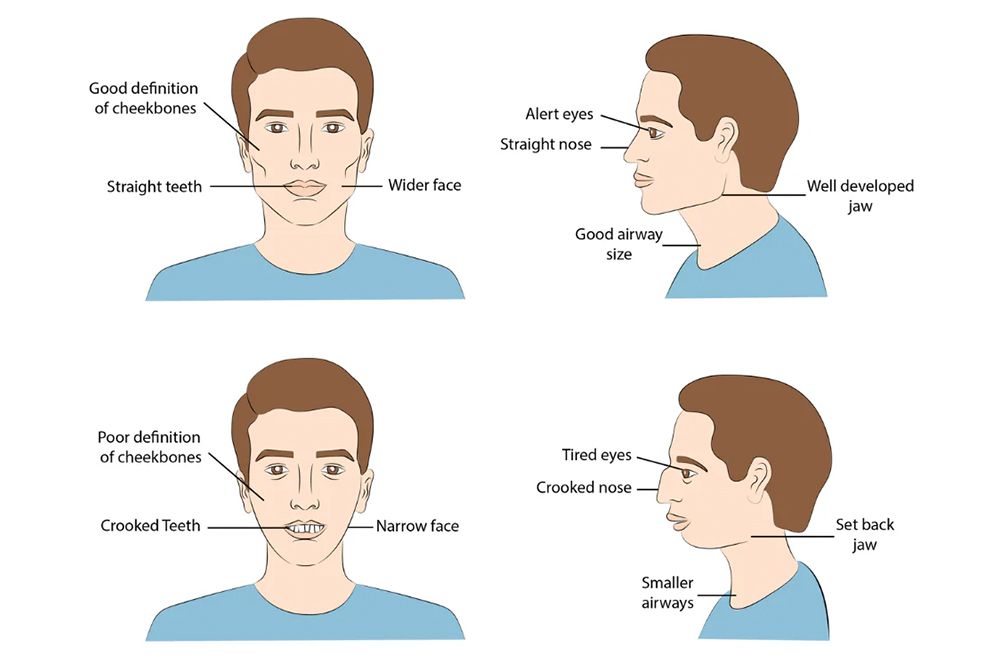
At Kaizen Dental in Market Harborough, we often see patients who struggle with dry mouth or mouth breathing. It might seem like a small problem, but over time it can affect your teeth, gums, sleep, and even your overall health.
Waking up with a dry mouth or noticing it during the day isn’t just uncomfortable, it can also affect your oral health. Saliva does more than keep your mouth moist, it helps wash away food particles, neutralises acids, and protects against tooth decay.
What are the common causes of dry mouth?
Mouth breathing: Sleeping with your mouth open or breathing through your mouth during the day reduces saliva flow.
Medications: Many everyday medicines from antihistamines to blood pressure tablets list dry mouth as a side effect.
Dehydration: Not drinking enough water, especially during colder months when people forget to hydrate, can contribute.
Lifestyle habits: Smoking, alcohol, and caffeine can all dry out your mouth.
Health conditions: Diabetes, stress, and certain medical treatments can also play a role.

What are the practical ways to ease dry mouth?
Stay hydrated: Sip water regularly throughout the day.
Breathe through your nose: Work on reducing night time mouth breathing, speak to your dentist if this is difficult.
Cut down on drying habits: Limit alcohol, caffeine, and tobacco.
Chew sugar-free gum: Gum can stimulate saliva flow.
Regular check-ups: A dentist can identify damage from dry mouth or mouth breathing early, and give you tailored advice.
Mouth Breathing in Children
Mouth breathing in children is more than just a habit, it can affect their growth, sleep, and oral health. When kids regularly breathe through their mouths instead of their noses, it can lead to dry mouth, a higher risk of cavities, and even changes in jaw and facial development over time. It may also contribute to poor sleep quality, daytime tiredness, and difficulties with concentration. Addressing mouth breathing early, with the help of a dentist or doctor, is important to prevent long-term health and developmental problems.
Stopping Mouth Breathing
In children: For children, early intervention is key. Parents should look for causes such as enlarged tonsils or adenoids, chronic nasal congestion, or allergies. Encouraging children to breathe through their nose during the day and seeking medical advice if mouth breathing continues at night are important steps. Dentists and orthodontists can also help by checking whether mouth breathing is affecting jaw or dental development.
In adults: For adults, addressing mouth breathing often starts with identifying the cause. Allergies, nasal congestion, or habits like sleeping on your back can all contribute. Simple changes such as using nasal sprays or strips, elevating your head while sleeping, and staying well hydrated can help. Quitting smoking and reducing alcohol intake may also improve nasal airflow.
Occasional dry mouth is common, but if you find yourself waking up with it often, it’s worth looking deeper. Not only can it damage your teeth and gums, but over time, it can even influence the shape of your face. The good news is that there are simple steps and professional solutions, to help protect your smile and your overall wellbeing.
Can the changes to shape of your face be reversed?
In children: Yes, often. If caught early, treatment such as orthodontics, myofunctional therapy (exercises for tongue and breathing habits), or addressing blocked airways can improve or even reverse the effects.
In adults: The changes to bone structure are harder to reverse without orthodontic or surgical treatment. But switching to nasal breathing and managing dry mouth can still prevent things from getting worse and improve sleep comfort, and oral health.
FAQs
Is mouth breathing harmful long term?
Yes. Long-term mouth breathing can increase the risk of tooth decay, gum problems, poor sleep, and even changes in facial structure in children.
Can dry mouth damage teeth?
Definitely. Saliva helps protect teeth by washing away bacteria and acids. Without it, your risk of decay and gum disease goes up.
When should I see a dentist for dry mouth or mouth breathing?
If you’re waking up with a dry mouth most nights or notice it during the day, it’s worth checking. At Kaizen Dental in Market Harborough, we can help find the cause and recommend the right treatment.
Can orthodontics help with mouth breathing?
Yes. In some cases, orthodontic treatment can improve airflow and correct the jaw or bite issues linked to mouth breathing. If you’d like to know what orthodontic treatment might be right for you or your child, click here.
Does mouth breathing affect sleep quality?
Absolutely. Mouth breathing is linked to snoring, restless sleep, and even sleep apnoea. Over time, poor sleep can affect your energy levels, focus, and overall health.
Is occasional dry mouth normal?
Yes, most people will experience it now and then, often after a night of snoring, drinking alcohol, or taking certain medicines. But if it happens regularly, it’s worth looking deeper at the cause.
Struggling with dry mouth or mouth breathing? Book your New Patient Exam at Kaizen Dental in Market Harborough today – we’ll help you protect your smile, your health, and your comfort.
Book Now
Find out more about dry mouth through NHS.






